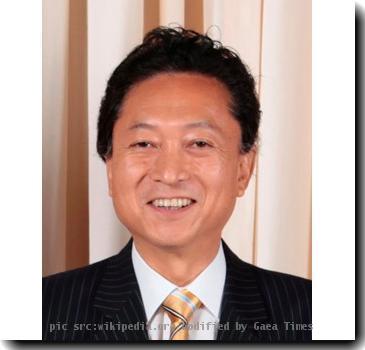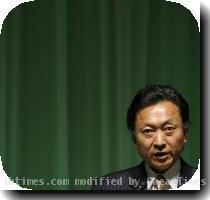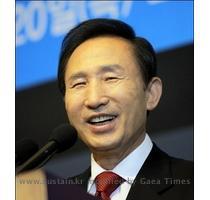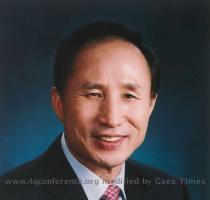North Korea accuses South of faking ship attack, says war is approaching
By Sangwon Yoon, APFriday, May 28, 2010
NKorea accuses South of faking warship sinking
SEOUL, South Korea — North Korea’s most powerful state organ said Friday that South Korea faked the sinking of one of its own warships and warned that the Korean peninsula was edging ever closer to war.
Pyongyang has made similar statements through state media since a multinational probe said last week that a torpedo fired by a North Korean submarine downed the vessel, killing 46 sailors in the worst attack on the South Korean military since the Korean War.
This time, though, the comments were delivered at an extremely rare press conference in the North Korean capital presided over by a uniformed official with the secretive country’s National Defense Commission, which is headed by leader Kim Jong Il.
North Korea has denied any responsibility and warned that retaliation or punishment for the sinking would mean armed conflict. So far, it has issued various threats, including one to cut off South Korean access to a joint industrial zone in the North and wage “all-out war.”
South Korea’s military has reported no unusual moves by the North’s troops.
“The South Korean puppet regime’s faked sinking of the Cheonan has created a very serious situation on the Korean peninsula, pushing it towards the brink of war,” Maj. Gen. Pak Rim Su, director of the commission’s policy department, said at the press conference, according to broadcaster APTN.
A number of people attended, including some foreigners who may have been Pyongyang-based diplomats, footage showed. A uniformed foreign military officer could be seen watching the proceedings, which were aired in full on state television.
Tensions have soared further since South Korea laid out Monday a series of punitive measures and pledged to haul Pyongyang before the U.N. Security Council. The steps include slashing trade, resuming anti-North Korean propaganda broadcasts across the border and launching large-scale naval exercises off the western coast.
“These anti-North Korean confrontations are an open declaration of war against us and an extraordinarily criminal act that pushes inter-Korean relations into a state of war,” Pak said.
Separately, North Korea’s Foreign Ministry issued a statement criticizing the U.S. for urging that the sinking be taken up by the Security Council.
The ministry also blasted U.S. Secretary of State Hillary Rodham Clinton, who made remarks critical of North Korea during a trip to the region that ended with a stop in Seoul on Wednesday, calling her comments “a spate of sheer lies” in the statement carried by the official Korean Central News Agency.
China has taken a cautious position amid moves by South Korea, the U.S. and Japan to condemn Pyongyang, its neighbor and traditional ally. Backing by Beijing, a veto-wielding permanent Security Council member, would be key to any bid to condemn or sanction North Korea.
Japan, which already bans trade with the North, slapped new sanctions on the country Friday, saying it will reduce the amount of money that can be sent there without being reported to the Japanese government. Tokyo also said it will slash the amount of cash travelers can take into North Korea — an apparent bid to target funds funneled to the North by ethnic Koreans in Japan.
The South Korean government quoted visiting Chinese Premier Wen Jiabao as saying Friday during talks with South Korean President Lee Myung-bak that his country would “defend no one” responsible for the sinking — once Beijing is satisfied who it was.
Wen’s comments could not be independently confirmed. China’s official Xinhua News Agency made no mention of a pledge not to defend those responsible in its report on the meeting.
However, Xinhua did quote Wen as saying China would make a judgment on the cause of the incident in an “objective and fair manner” and “take its stance on the basis of facts concerning the sinking of a South Korean warship.”
China “takes serious note of the results of a joint investigation by South Korea and other countries, as well as the reactions of all parties,” he said.
Wen’s remarks appear to show China is sensitive to South Korean anger over the sinking and rising criticism of Beijing’s reluctance to endorse the investigation results or criticize Pyongyang.
Wen’s pledge not to defend the perpetrators, as reported by South Korea, may also be a sign that Beijing won’t exercise its veto at the Security Council. That would likely be conditional on any measures taken against the North being symbolic and unlikely to further destabilize the regime.
Wen, South Korea’s Lee and Japanese Prime Minister Yukio Hatoyama are scheduled to hold a three-way summit Saturday and Sunday on the South Korean island of Jeju.
In Seoul, about 200 anti-North Korea activists, some carrying signs, gathered in front of the Foreign Ministry to protest China’s stance over the ship sinking.
“The Cheonan sinking was undoubtedly an act of terrorism,” said protest organizer Lee Hung-woo. “I hope Premier Wen Jiabao will stand for peace, not terrorism.”
Associated Press writers Jean H. Lee and Claire Lee in Seoul, Christopher Bodeen in Beijing and Shino Yuasa in Tokyo contributed to this report.
Tags: Accidents, Asia, Beijing, China, East Asia, Greater China, Japan, Lee Myung-bak, North America, North Korea, Pyongyang, Seoul, South Korea, Tokyo, Transportation, United States, Yukio Hatoyama



